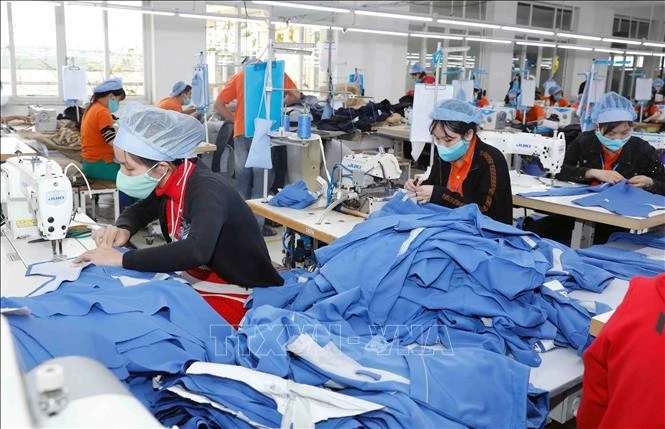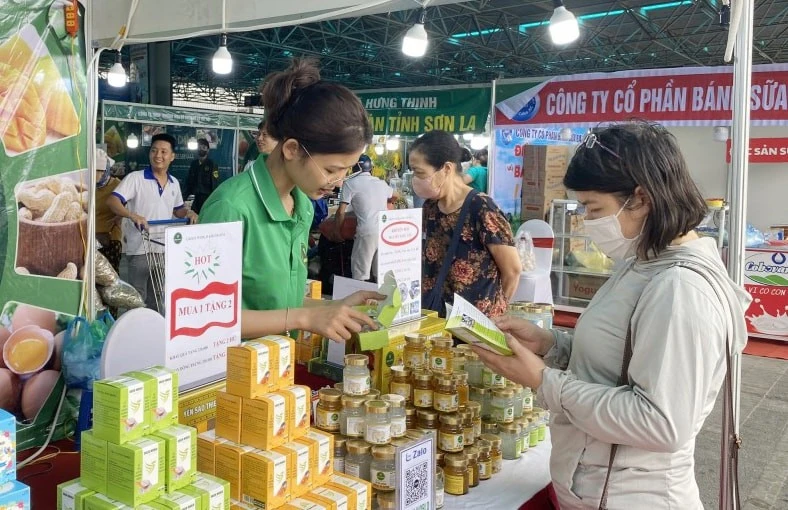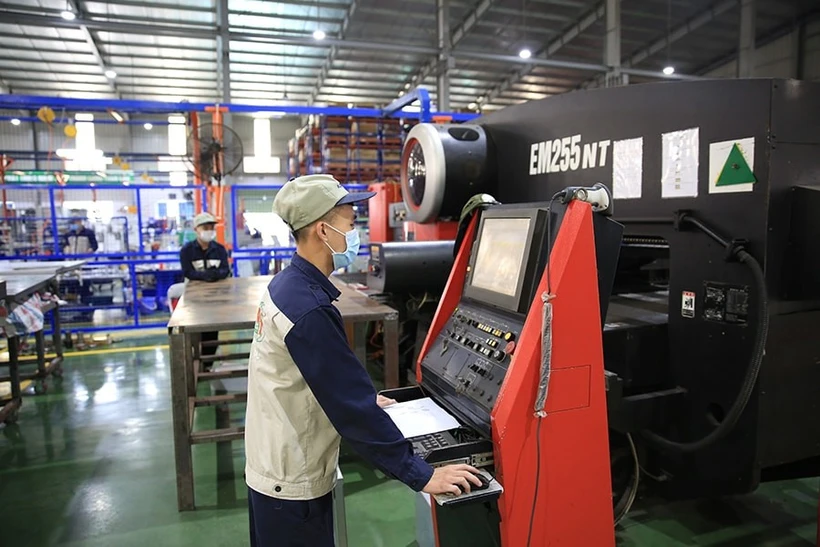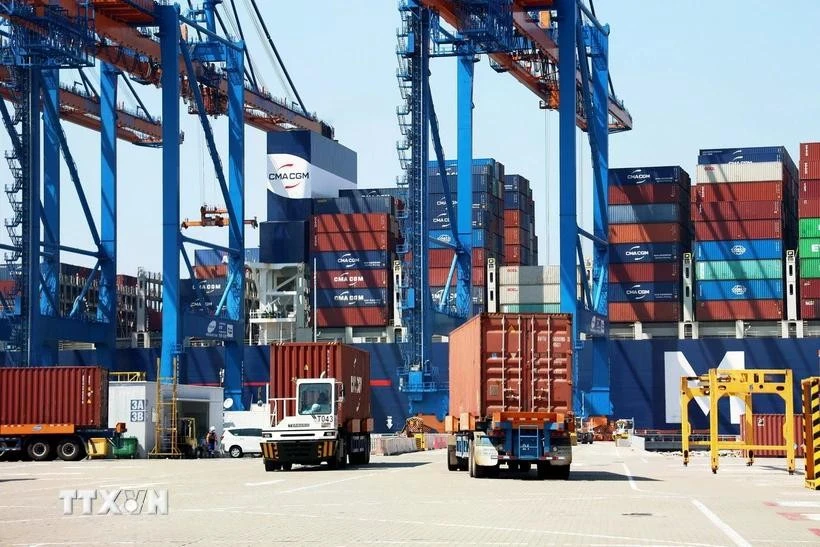The end result of the link chain is that the product is available in the market and well received by businesses and consumers. To do this, many cooperatives have been contributing to improving the value of local agricultural products. Cooperatives all want to improve their knowledge of trade promotion to continue accompanying production with people.
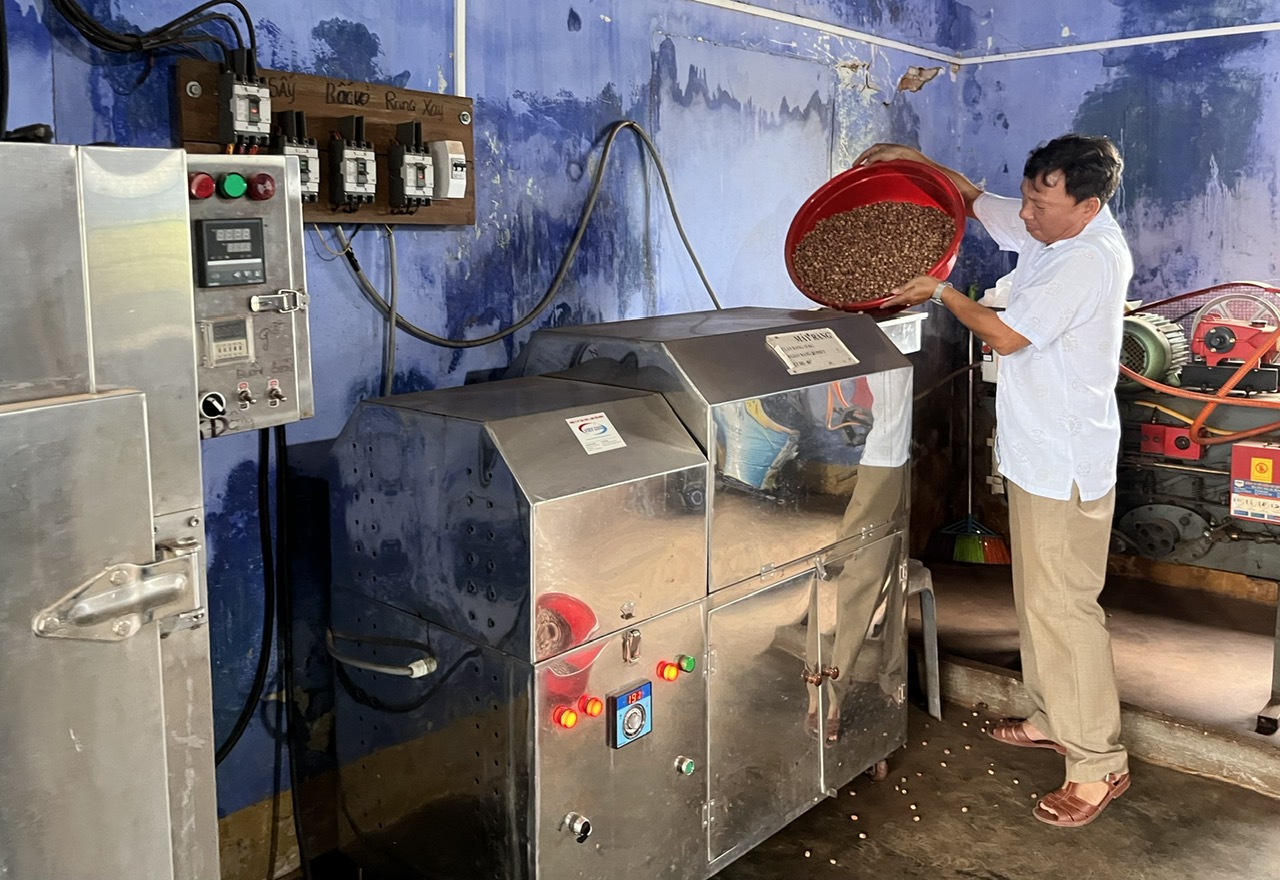 |
| Investing in processing technology, lotus seed powder products of Hoa Dong Agriculture and Service Business Cooperative being evaluated by the Provincial OCOP Council to meet the standards of 4-star OCOP products in 2025 |
In 2024, the province has 31 products of 18 cooperatives recognized with 3-star and 4-star OCOP products at the provincial level. By mid-2025, this number will increase to 43 products associated with 22 cooperatives.
According to the Provincial Cooperative Alliance, this result is due to the many years that cooperatives in the province have focused on developing a new cooperative model according to the product value chain. The cooperative's development of chain production in the agricultural sector has created OCOP products bearing the cooperative brand. Furthermore, some cooperatives develop planting area codes, apply organic and biological production processes, apply scientific and technical advances on most agricultural products associated with cultivation and breeding models such as pig and chicken; produce seed rice, commercial rice, high quality rice; vegetables, mushrooms of all kinds; clean salt; products processed from lotus, group fruits, peanut oil, turmeric starch, etc.
Many products of the cooperative currently have been expanding their consumption markets beyond the scope of the cooperative's traditional activities. Typically, there are products of Hoa Phong Agricultural Service Cooperative (Tay Hoa district), clean salt of Tuyet Diem Salt Cooperative (Song Cau town), peanut oil of Xuan Phuoc Agricultural Service Cooperative (Dong Xuan district), incense products of Phu Long Agro-forestry Cooperative (Tuy Hoa city), rice paper of Phu Yen rice paper cooperative, etc.; processed products from group fruits of Dong Din Agribusiness Cooperative (Phu Hoa district); high-quality rice of An Nghiep, An Hiep agricultural cooperatives (Tuy An district), Hoa Binh 1 (Tay Hoa district), Hoa Thanh (Dong Hoa town), Hoa Kien 2 (Tuy Hoa city), lotus products of Hoa Dong and Dong Hoa lotus cooperatives...
Since the beginning of the year, the whole province has recorded 2 products with 4-star OCOP certification. One of them is Hoa Dong lotus powder from Hoa Dong Agriculture and Service Cooperative. According to Mr. Nguyen Dong Minh, Director of this cooperative, the cooperative's products meet 4-star OCOP standards as a traditional local product, using modern machinery and equipment in the process of preliminary processing and packaging to ensure food safety and hygiene, with traceability according to regulations. Bringing products from 3 stars to 4 stars, the cooperative has changed a lot, from the production process to the market approach. Currently, the cooperative is gradually applying digital technology to participate more actively in the digital trade market in order to promote consumption, increase the value of agricultural products, and increase income for growers.
According to the Provincial Cooperative Alliance, from the trade promotion funding in 2025, the unit supports cooperatives, businesses and member units to display and introduce products at trade fairs in the South (Bac Lieu), the North (Hanoi). The Alliance also opened training courses on e-commerce promotion for 25 cooperatives. According to the plan, in this June, continue to participate in the fair in Quy Nhon city (Binh Dinh province).
Mr. Le Quang Hiep, Provincial Cooperative Alliance Vice Chairman said: Joint development activities along the value chain associated with the product has been promoted. This process also helps the cooperative promote links with businesses to improve operational efficiency, create jobs and increase income for members. Promote consumption, agricultural products of members are purchased and consumed by the cooperative at an increased price. From here, increase household economic income, contribute to sustainable poverty reduction for local socio-eco development members.


